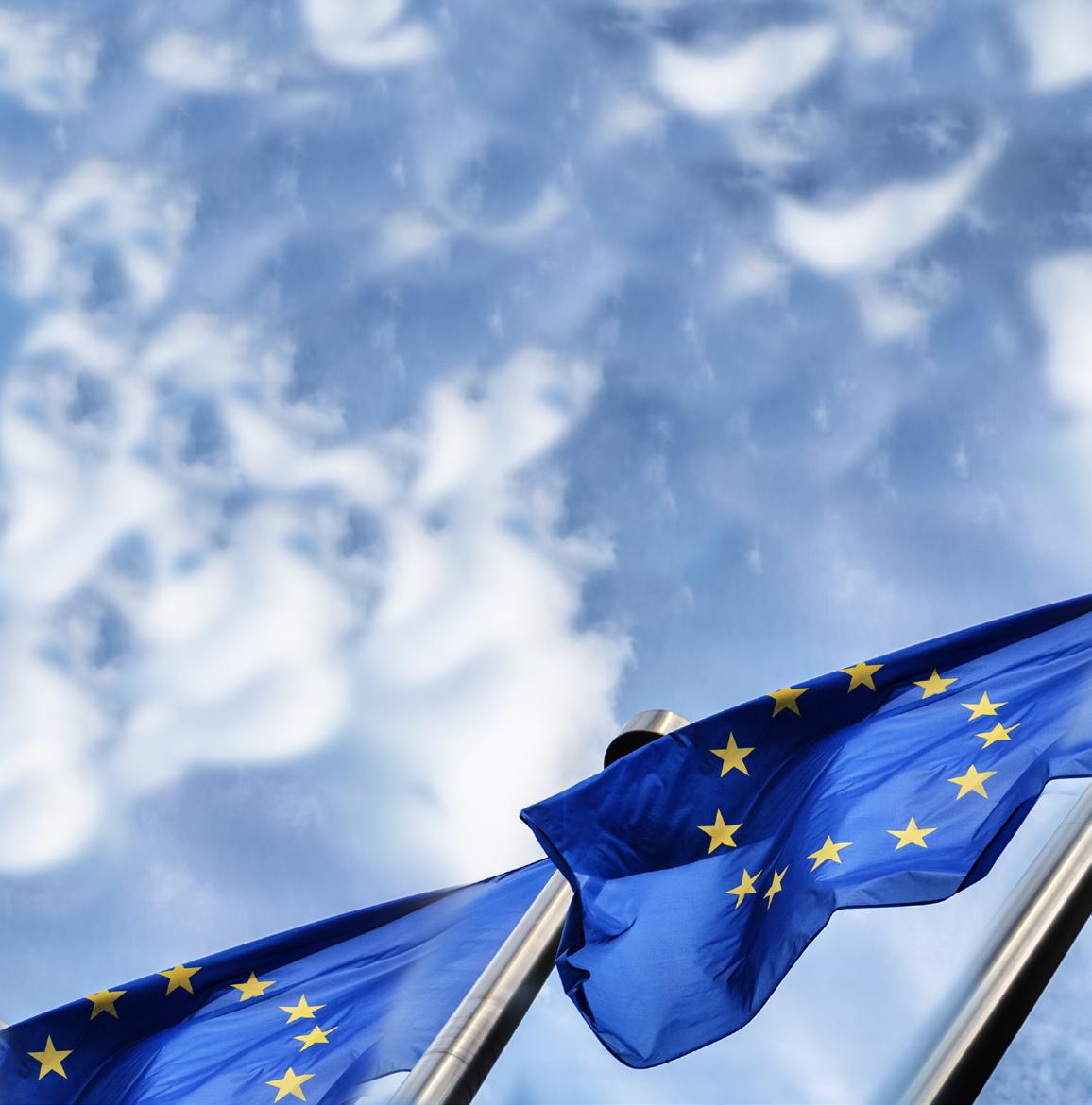
5 minute read
Identifying and specifically promoting digital key technologies
Using digitisation as a catalyst for sustainability 08
Digitisation and sustainability are the two megatrends of this century. Although there are many correlations between the two developments, they have so far largely been considered and discussed separately. For German industry, both topics - digitisation and sustainability - are crucial for the future. In an environment char acterised by massive global competitive pressure, it is essential to quickly develop and use new digital opportunities for value creation (networked production, Internet of Things, smart services, industrial platforms, artificial intelligence, etc.). At the same time, especially in Germany and the European Union, societal expectations and legal requirements for companies to handle data and new technologies, as well as environmental resources, responsibly are increasing. Digitisation of the economy and sustainability goals are not mutually exclusive, but can, and should complement each other positively. A sustainable Europe will only succeed if we reconcile economic, social and environmental objectives while remaining competitive. German industry needs adequate national, European and international framework conditions so that it can develop innovative, competitive and, above all, sustainable technologies that bring about ecological and social progress worldwide.
In order for digitisation to act as a catalyst for achieving the Sustainable Development Goals (SDGs), an ambitious and future-oriented industrial strategy is needed that focuses on investment and the promotion of innovation. In addition, significantly more investment is needed in key technologies relevant to sustainability, such as artificial intelligence, networked driving or biotechnology, digital infrastructure and trans-European transport and energy networks.
09
Politics
Strengthening the strategic promotion of AI and ensuring an innovation-friendly regulatory framework

AI funding should focus on industry-related fields of application in order to give Germany and Europe an advantage in international competition
Society AI Application
16 Europe can only survive within the international competition for artificial intelligence if national efforts to promote AI are expanded and brought together at European level. The “Coordinated Action Plan” drawn up by the EU Commission is a step in the right direction and should be pursued in a consistent manner. Support should be consciously oriented towards Europe’s strengths and values. One focus of support should be on the transfer of know-how to small and medium-sized enterprises. To this end, the Digital Innovation Hubs must be expanded and supplemented with specific KIK know-how. In addition, the EU Commission should draw up a coordinated research roadmap in close cooperation with the European member states as a supplement to the “Coordinated Action Plan”, in order not to jeopardise the overall good starting position in AI research. It must also be ensured that AI applications can develop as freely as possible. Intensive debates are taking place in politics, business and society about the ethical and legal challenges of AI. This debate is right and important. However, it must not lead to the hasty horizontal regulation of AI. This would pose major challenges for SMEs, in particular, and unnecessarily restrict their scope for innovation. Previously known critical AI applications can already be effectively regulated by using existing national or European law (e.g. DSGVO, anti-discrimination law, product safety directive). Additional regulations and procedures may only be considered if there is a concrete need. It should also be noted that the ethical and legal challenges of AI vary greatly depending on the purpose and context of use. All AI applications that do not make critical decisions about humans should be exempted from any regulation.
Key Enabling Technologies (KETs) are drivers for innovation in various industrial application fields. Key technologies are knowledge-based and enable innovations in processes, goods and services. In 2009, the EU identified the following technologies as key technologies: Advanced manufacturing technologies, advanced materials and nanotechnologies, life sciences (including biotechnology), micro- and nanoelectronics and photonics.
In February 2018, the definition of the above-mentioned analogue key technologies was extended by the EU High Level Expert Group on Industrial Technologies, headed by Jürgen Rüttgers, to include the digital key technologies artificial intelligence (AI), cybersecurity and connectivity.
These new digital key technologies must be adequately financed and promoted in the sense of basic sponsorship. A European roadmap must also be developed for Key Digital Technologies. Competencies must be strategically developed and coordinated across Europe. Public funding must be consistently provided for the development of these key technologies. For example, the EU must increase public investment in R&I-intensive sectors and allocate at least 8 percent of the budget of Horizon Europe (HEU) to projects related to key technologies.
In addition, the HEU missions should also place a clearer focus on Key Digital Technologies (e.g. by focusing on artificial intelligence in HEU mission area four (“Climate Neutral and Intelligent Cities”). It is essential that the promotion and coordination of key technologies go far beyond lighthouse projects in order to have a real impact and contribute significantly to European industrial competitiveness.
10
Lars Reger
Senior Vice President (SVP) Technology and Chief Technology Officer (CTO), NXP Semiconductors Germany GmbH
Imprint
Publisher BDI – Federation of German Industries Breite Straße 29 10178 Berlin T.: +49 30 2028-0 www.bdi.eu
Editorial team Dr Thomas Koenen, Head of department Department Digitalisierung und Innovation
Carolin Proft, Senior Manager Abteilung Digitalisierung und Innovation
Design & Implementation Vicharah Ly, Senior Manager Department for Marketing, Online and Event Management
Layout Michel Arencibia, Art Director www.man-design.net
Print Das Druckteam www.druckteam-berlin.de
Publishing Company Industrie-Förderung Gesellschaft mbH, Berlin
Bildnachweis P.1: 73669739 © Grecaud Paul | stock.adobe.com P.4: fX-D68esJz4 | unsplash P.9: 7nrsVjvALnA | unsplash P.10: 158449702 © Michail | stock.adobe.com P.15: NN9HQkDgguc | unsplash P.16: I4YsI1zWq_w | unsplash
Date and Number March 2020 BDI-Publications-Nr. 0100 Imprint
The BDI on Social Media
Follow our latest articles on social media. We appreciate Likes, Retweets and comments.
@Der_BDI
www.facebook.com/DerBDI
YouTube
www.youtube.com/user/bdiberlin
Newsletter
english.bdi.eu/media/newsletters






